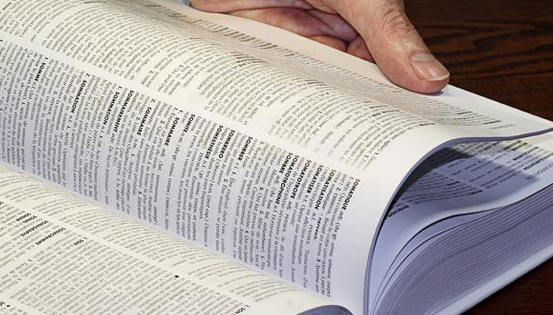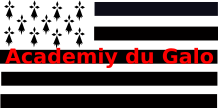
Linguistic Files of the Academy of Gallo
Cards of Standardization for Gallo

 Linguistic Files of the Academy of GalloCards of Standardization for Gallo |
You are not logged in : no training follow-up recorded
This digram appears quite frequently in Gallo, more frequently than in French, and in our language, its value, while remaining that of a vowel, presents a difference.
Indeed, it's most often heard through the central vowel /ɘ/, or /e/ when it closes.
It is the result of four evolutions that eventually converged, three of them specific to Gallo, the fourth parallel to French. These began with phonetizations specific to northern Romania before the year 1000.
Born from the meeting of a diphthong /je/ and a /j/, it subsequently met a different fate in French and Gallo.
In French, the central element has been reduced, leaving only the closed vowel /i/ we still know today (lit, pis de la vache, pire...).
Gallo, on the other hand, reduces the initial /j/. All that remains is the diphthong /ej/. As it stands, it could have encountered the same diphthong that later gave rise to the diphthong /aj/ (spelled ai in modern Gallo; cf. the digrams -oê and -ai).
However, this is not the case. We can therefore conclude that it predates this diphthong, and that it had already been reduced to a simple vowel before the diphthong re-emerged a second time. This vowel would be /e/, which would later evolve into the central /ɘ/ that dominates the Gallic domain today:
This triphthong has, like the previous one, amuited the central vowel in French, resulting in /ɥi/ (fr. nuit (night)).
And again, it's the initial element that disappears in Gallo with evolution of the central vowel, hence /ej/. This is followed by a reduction to a single vowel /e/ as in the previous case, which finally weakens to /ɘ/. This is how we obtain /ɘ/ corresponding to the French /ɥi/:
This evolution was presented with the spelling -ai. Let's simply recall that this reduction is due to a phonetic environment which, through the abundance of consonants, reduces the vowel ensemble (cf. the digrams -oê and -ai ) :
In this case, Gallo joins French. The behavior of nasals can be seen in a separate chapter, and we'll stop here with the result that concerns us.
Starting with the nasals /ɛ̃j/ or /ɛ̃ɲ/, diphthongs have deconstructed, giving way to a single nasal vowel /ɛ̃/. These vowels become denasalized in the derivation.
In Gallo, there's usually an additional step leading to a central vowel /ɘ/.
This is why we find a spelling similar to French, but with a value of its own in Gallo and already in use in the cases presented above:
What's more, this -ei spelling presupposes a permanent pronunciation of the digram. On a regular basis, it should appear in derivatives of fein. In this case, however, it is amuited between two consonants. This is why it is not used, and why we write fener, fenouz and others.